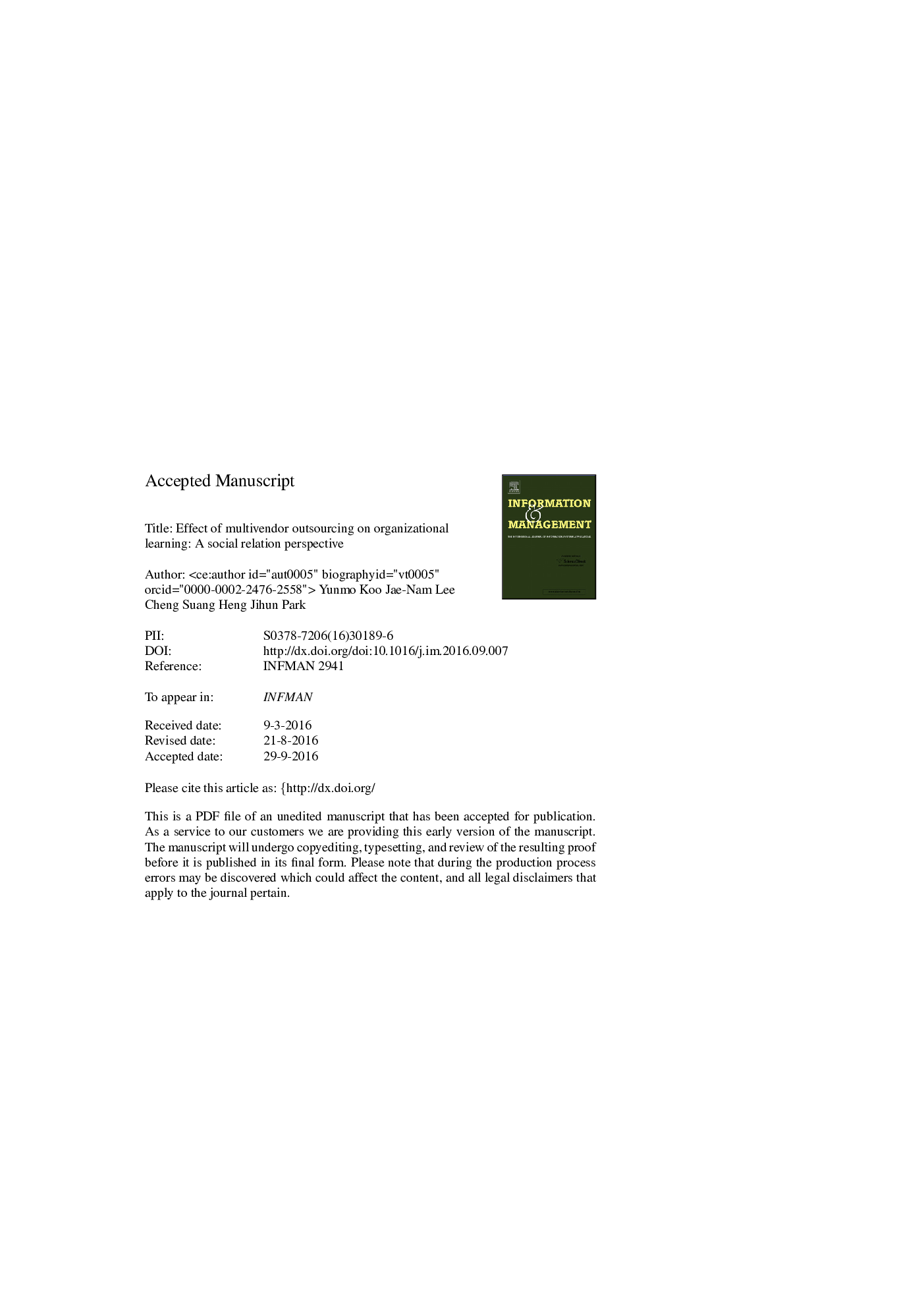| Article ID | Journal | Published Year | Pages | File Type |
|---|---|---|---|---|
| 4972623 | Information & Management | 2017 | 4 Pages |
Abstract
The growing trend of engaging multiple vendors, coupled with the concern over “possible” loss of knowledge in information technology (IT) outsourcing relationships, compels us to investigate organizational learning in multi-vendor outsourcing from a social relation perspective. Social relation has been conceptualized in terms of how organizational relationships with social entities facilitate and/or inhibit organizational learning. In particular, we examine how two different relational structures-single vendor dominant model and multi-vendor dominant model-are associated with two types of organizational learning, namely, exploitative and exploratory. Furthermore, we investigate how three critical dimensions-structural (core vs. non-core functions), affective (partnership vs. transaction), and cognitive (business value vs. IT capability)-in social relation affect the relationships between the two relational structures and the two types of organizational learning in the context of IT outsourcing. The proposed hypotheses were tested using 203 Korean client firms that have adopted the multi-vendor approach in IT outsourcing. Results reveal that the single vendor dominant model exerts a more significant effect on exploitative learning than exploratory learning. By contrast, the multi-vendor dominant model has a more significant effect on the latter than the former. Furthermore, out of the six moderating variables, four (core IT function, non-core IT function, partnership relationship, and transaction relationship) have significant influences on exploitative and exploratory learning. We conclude with theoretical contributions in the area of social relation theory and IT outsourcing literature, and implications for practices on how clients can enhance engagement in exploitative and exploratory learning to reap the benefits of multi-vendor outsourcing.
Related Topics
Physical Sciences and Engineering
Computer Science
Information Systems
Authors
Yunmo Koo, Jae-Nam Lee, Cheng Suang Heng, Jihun Park,
